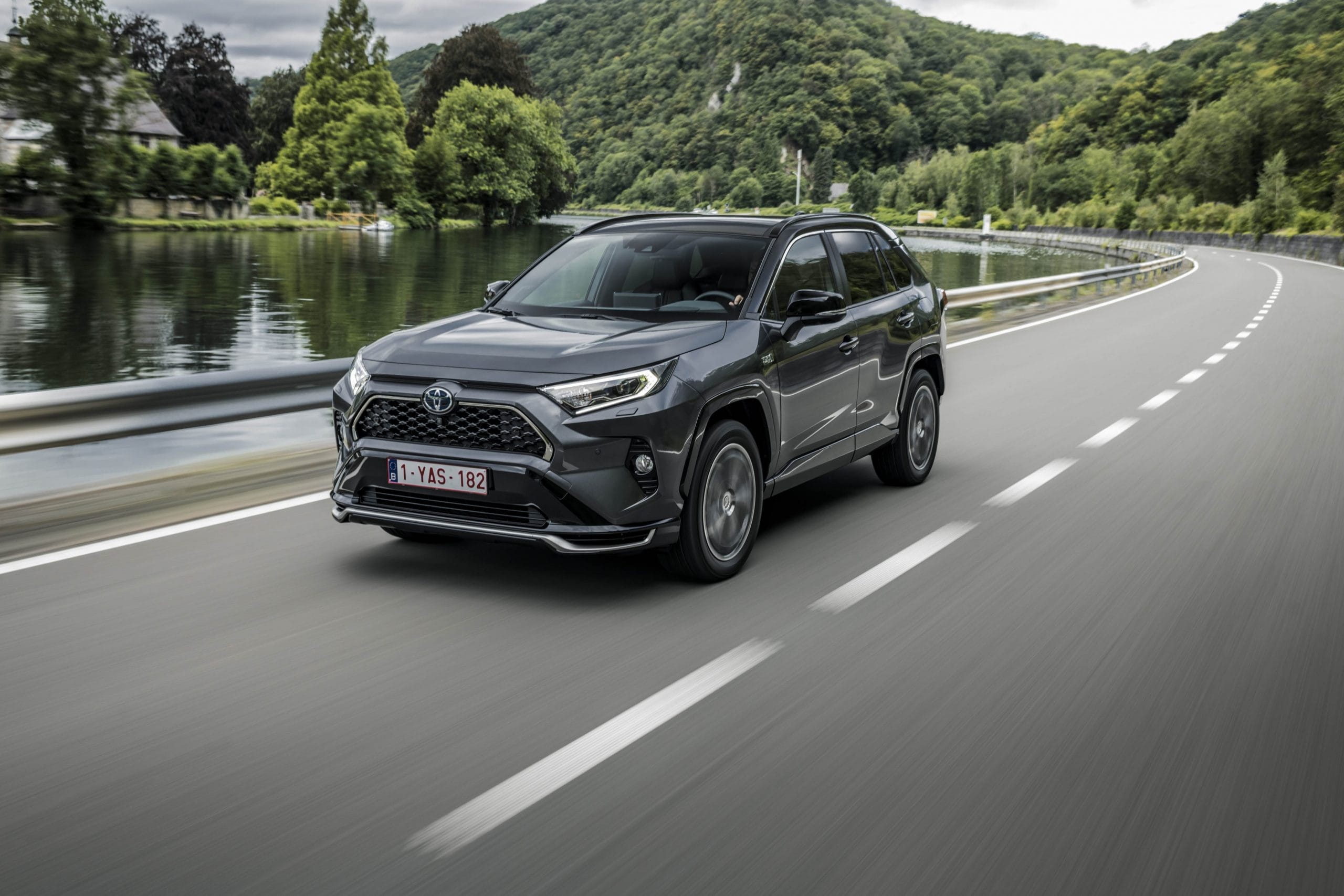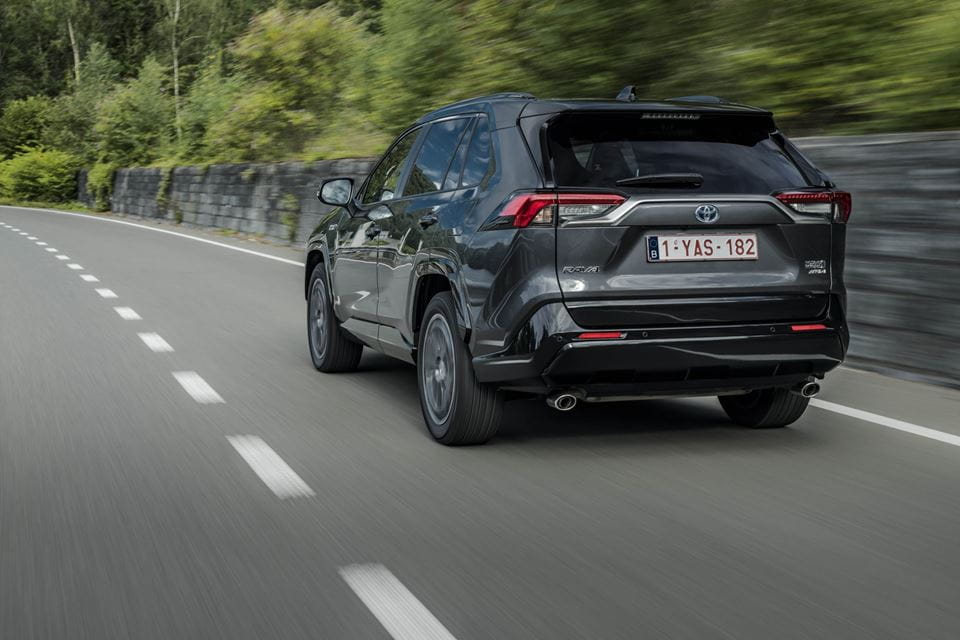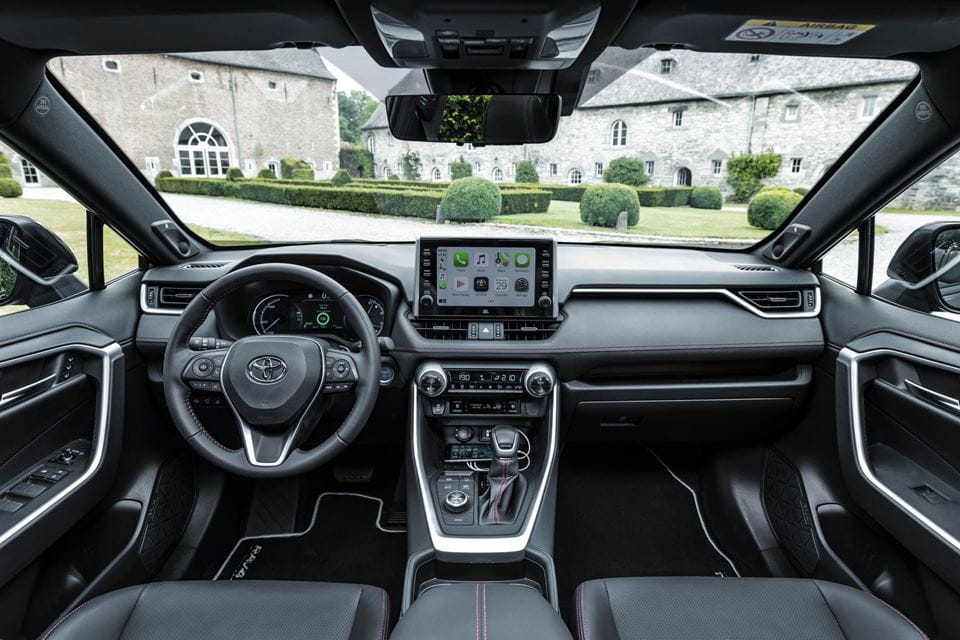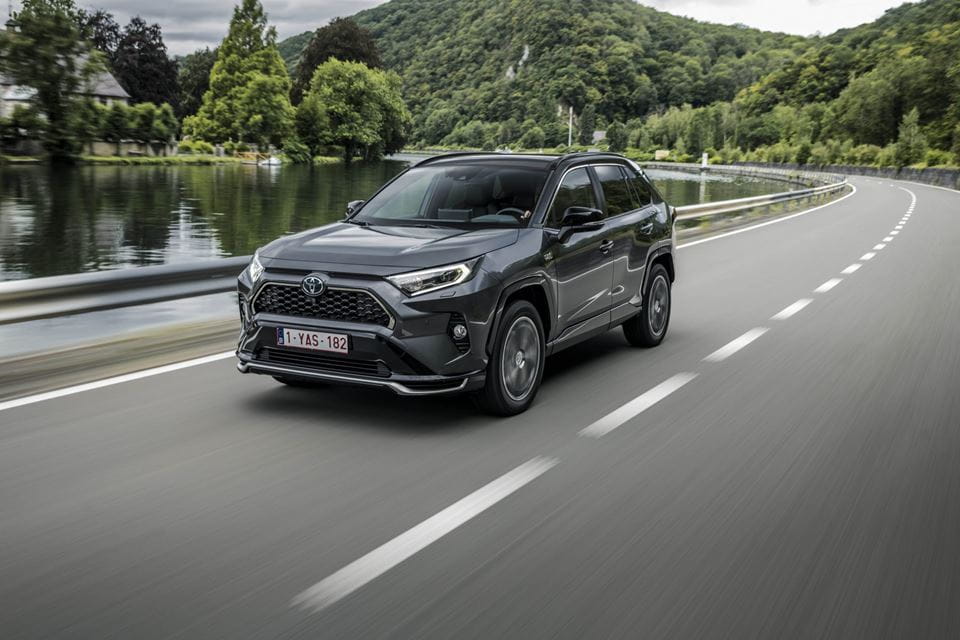
Car review – Toyota RAV4 Plug-in Hybrid
Reluctantly, yet convincingly
As a specialist of the self-charging hybrid, Toyota saw no real added value in plug-in hybrids. Forced by European emission targets, the brand has changed tack with this RAV4 PHEV, which appears to be an instant hit.

Plenty of power
This RAV Plug-in Hybrid is based on the "regular" hybrid RAV4 and thus also uses a 2.5. It combines this beefy four-cylinder with an electric motor on the front axle and a second one on the rear axle to deliver a combined output of 306 hp. That's a lot for this family SUV, which accelerates from zero to a hundred in just 6 seconds and reaches its limited top speed of 180 km/h effortlessly.
The battery under the floor contains a healthy 18.1 kWh and takes the driver and passengers some 80 kilometres on a single charge. The RAV4 can drive electrically up to 135 km/h and always gives priority to its electric motors as long as the battery is not flat or there is no need for full power.

CO2 champ
With an official WLTP CO2 emission of 22 g/km, which corresponds to exactly one litre of petrol for every hundred kilometres, Toyota promises an exceptionally low consumption. You can actually achieve these numbers if you drive little more than the electric range allowed by the battery and systematically recharge your RAV4.
Our test consumption of 2.3 l/100 km plus 24 kWh/100 km is an excellent result that proves even a heavy and powerful SUV can be quite economical when you charge wherever and whenever you can.
With an empty battery, this plug-in drives like a classic Toyota hybrid, which means fuel efficiency is still exemplary, averaging around 6 l/100 km.

Similar qualities
The insertion of the battery pack had virtually no effect on the RAV4's practical usability. The boot has a 3.5 centimetre higher floor but retains an optional storage compartment underneath and can still hold a good 500 litres, while interior space is as generous as in the "normal" version.
Comfort is also identical to the Hybrid's, with good soundproofing, solid materials, and a neat assembly, while the well-designed front seats offer great support.



